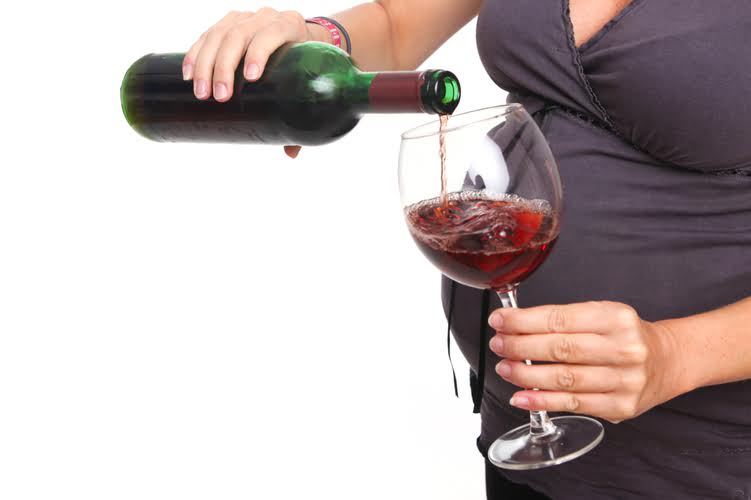Inner Voyage prepares you to experience recovery, even if you’ve relapsed in the past, and to help you re-enter the world as your healed self. Like other poisons, the body works to rapidly remove it from the blood, which makes a lot of work for the liver and kidneys. It helps to be familiar with the signs of being drunk so you know what to expect, when to stop it, and when to get help.
Think twice before driving

Just because you can “hold your drink” and don’t feel intoxicated doesn’t mean that you’re not. Having food in your stomach slows absorption, while drinking on an empty stomach has the opposite effect. The faster alcohol is absorbed into your bloodstream, the higher your BAC, and the longer it’ll take to sober up — especially if you keep drinking. You can’t really predict how long you’ll stay drunk, and try as you might to stop being drunk faster, there’s nothing you can do to lower your BAC once you’ve started drinking. Considering that half of all college students report having blacked out at least once, this may not seem like a big deal. However, frequent blackouts can be an early sign of problem drinking or alcohol use disorder.

How fast you knock ’em back
We all know that the brain is the main source of the body’s functions. Imagine putting your brain in a jar filled with alcohol and shaking it up— it’s not a pretty picture. Yet that’s what slowly happens, to a certain extent, when you drink and don’t stop drinking alcohol.
Understanding the Physical Sensations of Being Drunk
Initially, alcohol can induce feelings of relaxation and euphoria. However, as consumption increases, it can impair cognitive function, leading to difficulties in judgment, decision-making, and coordination. Cultural attitudes towards drinking can shape how individuals perceive and engage in alcohol consumption, influencing drinking patterns and social norms. A blackout occurs when alcohol prevents your brain from forming new memories. During a blackout, you may still walk, talk, and interact with others, but you won’t remember any of it the next day. Blackouts are a sign of severe intoxication and indicate that you’ve consumed too much alcohol.
- There are numerous resources available, such as support groups, helplines, and counseling services, that can provide guidance and assistance.
- Being drunk means the effects of alcohol are much stronger, and you may have impaired motor skills, judgment, and coordination.
- If you’re questioning whether enough time has passed since your last drink and if it’s safe to drive, err on the side of caution for yourself and others on the road and find a ride.
- Thestages of intoxication varyfrom person to person based on a variety of factors.
- No matter your size, your liver will only digest one standard drink per hour.
- Alcohol has the ability to impact emotions and behavior, often resulting in changes in mood and personality.
- If you or someone you know is struggling with alcohol consumption, seeking help and support is crucial.
- Our loved ones may get tired of taking care of us when we’ve overdone the alcohol, yet again.
This means that while you might feel in control, your judgment and motor skills are significantly impaired, leading to risky or unpredictable behavior. Drinking on an empty stomach accelerates the process, making you feel drunk faster and more intensely. At this http://www.socioclub.org/others/1243/all.htm point, alcohol is impairing both your mental and physical abilities. It’s essential to recognize that, despite feeling in control, your ability to make sound judgments is greatly reduced.
- A person can be arrested if they are found driving with a BAC above this limit.
- If you or someone you care about is struggling with alcohol use, don’t hesitate to reach out.
- Reframe supports you in reducing alcohol consumption and enhancing your well-being.
- We recently launched our in-app chatbot, Melody, powered by the world’s most powerful AI technology.
Mixing Weed and Alcohol: Effects and Risks
- At a BAC of 0.45 or above, you are likely to die from alcohol intoxication.
- Alcohol’s effect on emotions and behavior can be unpredictable, varying from person to person.
- For a deeper understanding of how alcohol affects the brain, you can read this article.
- Depending on a person’s BAC, it may not be safe to let them sleep unsupervised.
- Inner Voyage prepares you to experience recovery, even if you’ve relapsed in the past, and to help you re-enter the world as your healed self.
At this point, the body may not be able to maintain vital functions like breathing. However, remember that death is still possible at earlier stages and with other BAC figures. Remember, responsible drinking is about enjoying alcohol in moderation and maintaining a healthy balance. By following http://uniton.by/index.php?view=search&query=angry&look=allwords these tips, knowing your limits, and seeking support when needed, you can ensure a safer and more enjoyable drinking experience.
More Questions about Treatment?

For example, if a person has one 3-unit (30ml) alcoholic beverage, they should wait at least 3 hours before driving. The time a person should wait after drinking before they drive depends on the amount of alcohol they have consumed. The quantity of alcohol a person drinks determines the duration of their intoxication. That a https://go2oaxaca.com/undergraduate-bodily-training-program.html drunk person can say or do something that doesn’t represent some subconscious part of them is a concept that experts have repeatedly questioned. The risk of death significantly increases when a person’s BAC surpasses 0.45.
If you’re planning on drinking, it’s essential to understand how long alcohol will stay in your system to avoid risky behaviors like driving under the influence. Usually a man will start to feel tipsy after consuming 2 to 3 alcoholic drinks in an hour. A woman will feel tipsy after consuming 1 to 2 alcoholic drinks in an hour. Having a couple of drinks can cause a spike of dopamine, which induces the ‘happy-drunk’ feeling, in the long-run alcohol can act as a depressant.


